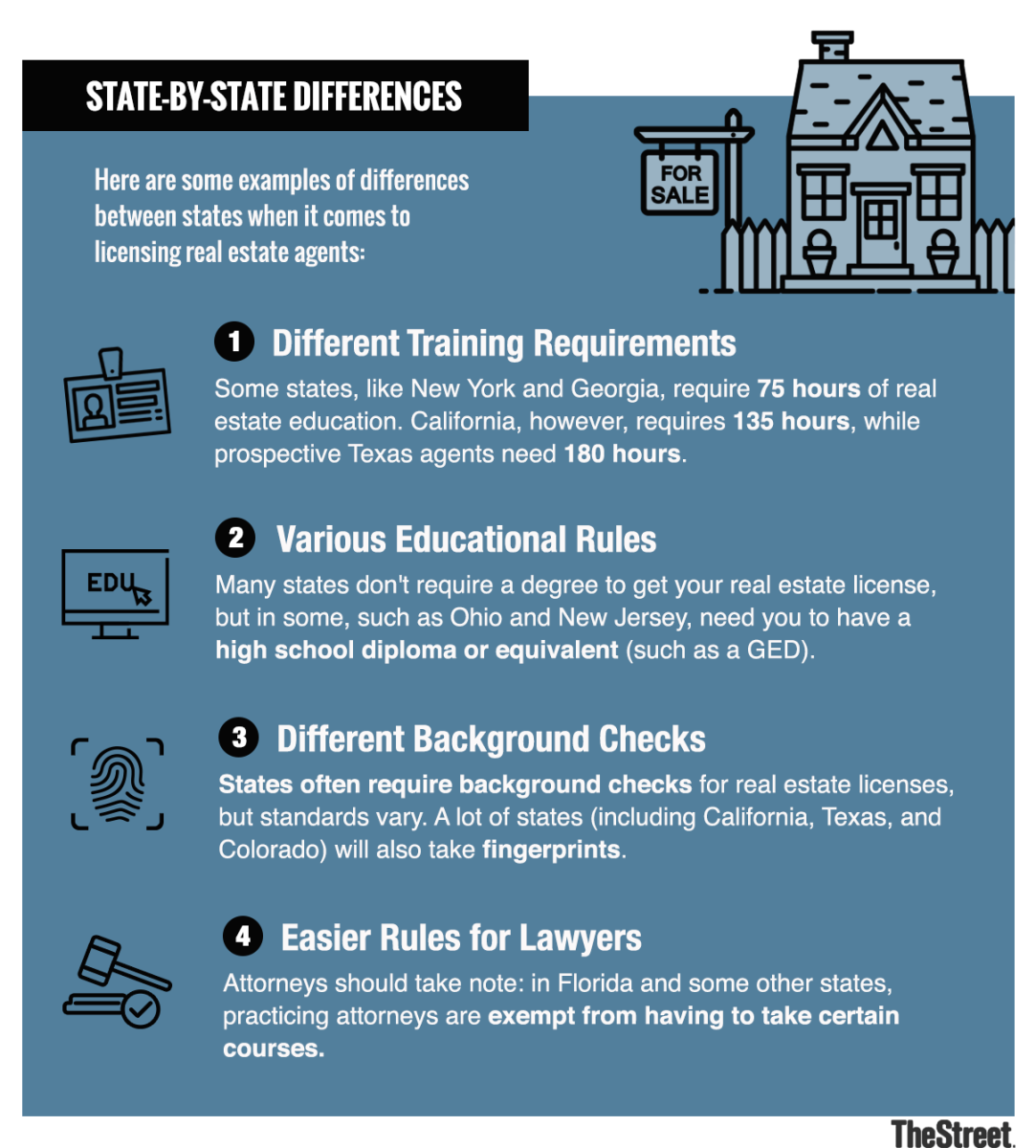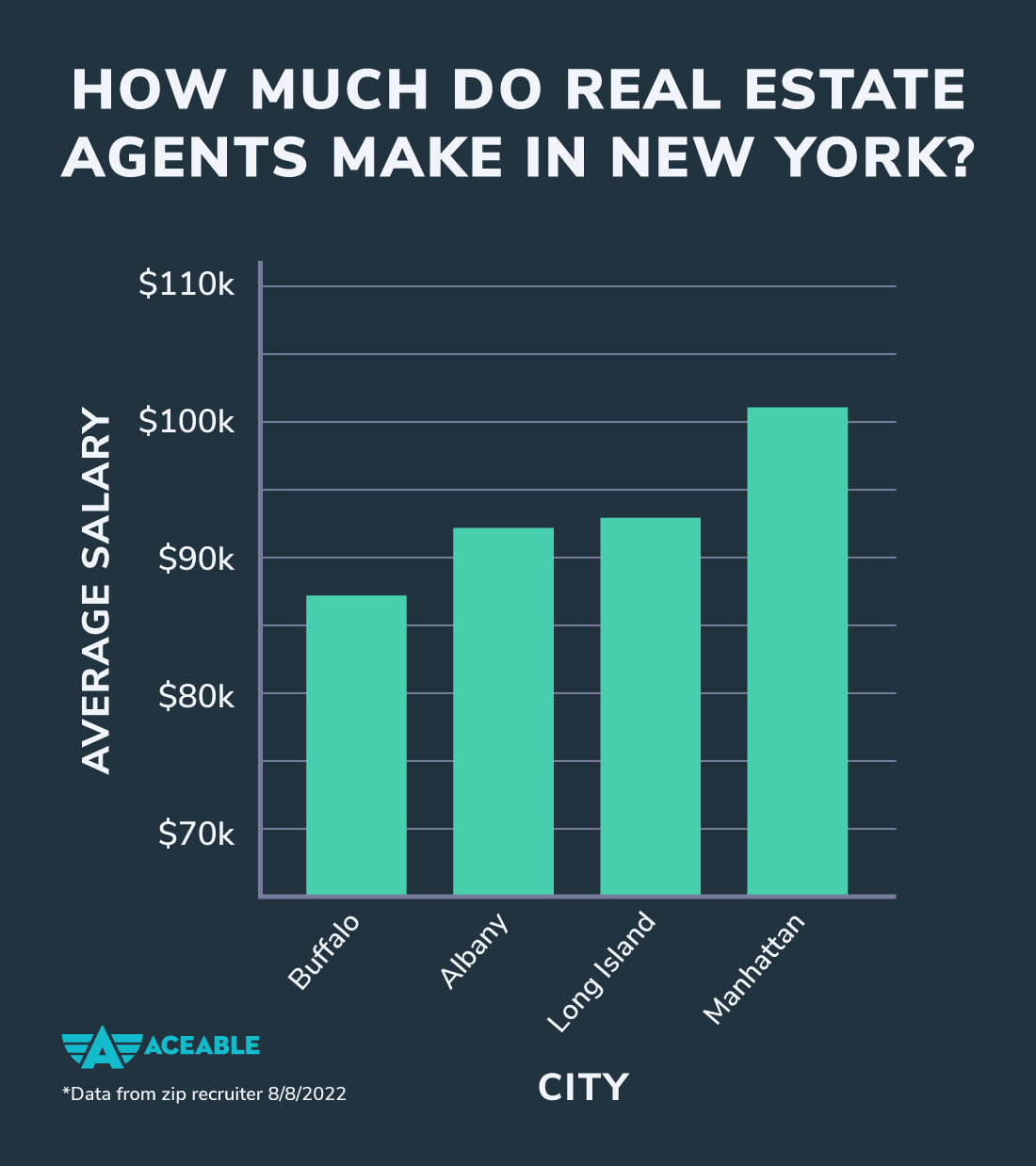
If you are interested in starting a realty business, obtaining a license to be an agent is a great career choice. In addition to helping you learn the ins and outs of investing in real estate, it can also help you build up a network of people and information that you can use to your advantage. However, it's important to note that getting a license involves a lot of time, money and effort.
Before you can get started with a real estate business, you'll need to pass your state's licensing exam and enroll in a real estate education course. The cost of these courses and exams can vary significantly from state to state. You can save a lot of money by enrolling in an online course. You can also save money on your license by enrolling in an online course. This will cost you more than a self-proctored class, but it will cut down on the time you need to spend studying.

Basic real estate license packages can cost anywhere from $400 up to $1,500. It will take you a few months or years to complete your education, depending on the school you choose, the amount of credit hours required, and your location. You should be prepared for a rich and engaging education experience.
When you are planning your education and testing, it's important to know which real estate courses will help you get the most out of your investment. These courses could include anything from special education to coursework in specialized areas. TREC has approved real estate courses. This will ensure that you are ready to take the exam.
As you prepare to take the real estate licensing exam, you will also need to prepare yourself for the state portion. Your score on this exam will depend on the number and quality of your correct answers. A diagnostic report can be purchased to see how you score on the exam. After receiving your results you will be able to decide if you are ready for real estate work.
You may be interested in a less costly way to obtain your real estate license. A broker's licence is much more affordable than one that requires salespersons to study. Besides a lower price tag, a broker's license comes with benefits such as office space and mentoring programs. The services you receive may incur monthly fees, depending on which broker you choose.

The ability to invest in a realty license can give you access to a wealth knowledge and valuable network. But it doesn't guarantee that you'll be able to have it within a few months. It can take up to four years to acquire a license, but you can save a considerable amount of time by enrolling in a course that's been approved by TREC.
FAQ
How much money do I need to purchase my home?
It depends on many factors such as the condition of the home and how long it has been on the marketplace. Zillow.com reports that the average selling price of a US home is $203,000. This
What are the benefits associated with a fixed mortgage rate?
With a fixed-rate mortgage, you lock in the interest rate for the life of the loan. You won't need to worry about rising interest rates. Fixed-rate loans also come with lower payments because they're locked in for a set term.
How can I repair my roof?
Roofs may leak from improper maintenance, age, and weather. Roofers can assist with minor repairs or replacements. Contact us for more information.
What is the maximum number of times I can refinance my mortgage?
This depends on whether you are refinancing with another lender or using a mortgage broker. In either case, you can usually refinance once every five years.
Do I need flood insurance?
Flood Insurance covers flooding-related damages. Flood insurance can protect your belongings as well as your mortgage payments. Find out more information on flood insurance.
Statistics
- It's possible to get approved for an FHA loan with a credit score as low as 580 and a down payment of 3.5% or a credit score as low as 500 and a 10% down payment.5 Specialty mortgage loans are loans that don't fit into the conventional or FHA loan categories. (investopedia.com)
- Over the past year, mortgage rates have hovered between 3.9 and 4.5 percent—a less significant increase. (fortunebuilders.com)
- Based on your credit scores and other financial details, your lender offers you a 3.5% interest rate on loan. (investopedia.com)
- When it came to buying a home in 2015, experts predicted that mortgage rates would surpass five percent, yet interest rates remained below four percent. (fortunebuilders.com)
- Some experts hypothesize that rates will hit five percent by the second half of 2018, but there has been no official confirmation one way or the other. (fortunebuilders.com)
External Links
How To
How to manage a rental property
Although renting your home is a great way of making extra money, there are many things you should consider before you make a decision. We'll help you understand what to look for when renting out your home.
If you're considering renting out your home, here's everything you need to know to start.
-
What do I need to consider first? Before you decide if you want to rent out your house, take a look at your finances. If you have any debts such as credit card or mortgage bills, you might not be able pay for someone to live in the home while you are away. It is also important to review your budget. If you don't have enough money for your monthly expenses (rental, utilities, and insurance), it may be worth looking into your options. It may not be worth it.
-
How much is it to rent my home? The cost of renting your home depends on many factors. These factors include location, size, condition, features, season, and so forth. Keep in mind that prices will vary depending upon where you live. So don't expect to find the same price everywhere. Rightmove has found that the average rent price for a London one-bedroom apartment is PS1,400 per mo. This means that if you rent out your entire home, you'd earn around PS2,800 a year. While this isn't bad, if only you wanted to rent out a small portion of your house, you could make much more.
-
Is it worthwhile? Doing something new always comes with risks, but if it brings in extra income, why wouldn't you try it? It is important to understand your rights and responsibilities before signing anything. Not only will you be spending more time away than your family, but you will also have to maintain the property, pay for repairs and keep it clean. Before signing up, be sure to carefully consider these factors.
-
Are there any advantages? It's clear that renting out your home is expensive. But, you want to look at the potential benefits. There are many reasons to rent your home. You can use it to pay off debt, buy a holiday, save for a rainy-day, or simply to have a break. You will likely find it more enjoyable than working every day. And if you plan ahead, you could even turn to rent into a full-time job.
-
How can I find tenants After you have decided to rent your property, you will need to properly advertise it. You can start by listing your property online on websites such as Rightmove and Zoopla. You will need to interview potential tenants once they contact you. This will help you evaluate their suitability as well as ensure that they are financially secure enough to live in your home.
-
How can I make sure that I'm protected? You should make sure your home is fully insured against theft, fire, and damage. Your landlord will require you to insure your house. You can also do this directly with an insurance company. Your landlord will likely require you to add them on as additional insured. This is to ensure that your property is covered for any damages you cause. If your landlord is not registered with UK insurers, or you are living abroad, this policy doesn't apply. In this case, you'll need to register with an international insurer.
-
If you work outside of your home, it might seem like you don't have enough money to spend hours looking for tenants. Your property should be advertised with professionalism. You should create a professional-looking website and post ads online, including in local newspapers and magazines. A complete application form will be required and references must be provided. Some prefer to do it all themselves. Others hire agents to help with the paperwork. Interviews will require you to be prepared for any questions.
-
What should I do once I've found my tenant? If there is a lease, you will need to inform the tenant about any changes such as moving dates. You may also negotiate terms such as length of stay and deposit. Remember that even though you will be paid at the end of your tenancy, you still have to pay utilities.
-
How do I collect the rent? When it comes time for you to collect your rent, check to see if the tenant has paid. If your tenant has not paid, you will need to remind them. You can deduct any outstanding payments from future rents before sending them a final bill. If you are having difficulty finding your tenant, you can always contact the police. The police won't ordinarily evict unless there's been breach of contract. If necessary, they may issue a warrant.
-
How can I avoid potential problems? Renting out your house can make you a lot of money, but it's also important to stay safe. Consider installing security cameras and smoke alarms. Check with your neighbors to make sure that you are allowed to leave your property open at night. Also ensure that you have sufficient insurance. You should not allow strangers to enter your home, even if they claim they are moving in next door.